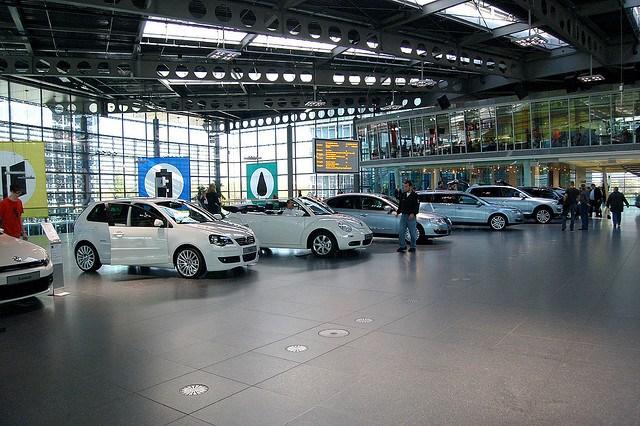
Volkswagen isn't the only company that is under the microscope for allegedly deceiving consumers about vehicle emission results, says the Europe-based organization Transportation and Environment. According to road tests conducted by the organization, a number of Mercedes, BMW and Peugeot vehicles guzzled, in some cases, as much as 50 percent more fuel than was stated in company-run lab tests.
"The gap between official and real-world performance found in many car models has grown so wide that it cannot be explained through known factors including test manipulations," Transport and Environment concluded in a new report. The organization is a consortium of organizations and companies with environmental interests in the European transportation sectors.
According to its report, Mind the Gap: The Difference Between Official Car CO2 Test Results and Real World Emissions in 2014, Mercedes led the pack with "real-world fuel consumption exceeding test results by nearly half." Similarly, attempts to remedy fuel consumption in Opel/Vauxhall cars (owned by GM Motors) have been ineffective say the report authors, and their fuel economy "is actually getting worse." The organization also notes that while these discoveries don't necessarily suggest that defeat devices were used in these cars, "EU governments must extend probes into defeat devices to CO2 tests and petrol cars too."
The gap between real-world road test results and what is published from lab tests "has become a chasm," the report's authors write. The organization warns that, without action by regulatory agencies, the gap "will likely grow to 50 percent on average by 2020."
Here in North America, the Environmental Protection Agency and its California counterpart, the California Air Resources Board (CARB), are being pressured to explain why action wasn't taken sooner to inform consumers of the assertion that VW had cheated on its emission tests. According to Dan Carter, one of the University of West Virginia researchers that discovered the discrepancy, the EPA and CARB were informed of the problem more than a year earlier, when the research team presented the test results at a symposium in San Diego, in March 2014.
"We said, these are two vehicles — we’re presenting what we can present. And EPA people were in the audience," Carter told LA Weekly.
In fact, Carter said, CARB and the EPA actually sponsored the event and had representatives in the audience. By December of that year, both agencies conducted private investigations, and allegedly secured promises from VW to fix the discrepancies. Yet consumers were not told about the alleged deception, and sales of the vehicles, which had not yet been fixed, were still booming, writes Dennis Romero.
"All this was done in virtual secrecy. People were allowed to continue buying, leasing and driving these cars," writes Romero.
For its part, CARB says it really didn't confirm that there were problems until May of this year when it conducted "confirmatory testing to determine the efficacy of recall for both the Gen1 and Gen2 vehicles." And while CARB chair Mary Nichols admits that the agency was in discussion with VW in 2014 regarding the emission findings, it hasn't explained why consumers were still allowed to purchase the vehicles. Both agencies say that they delayed action due to VW's assertions that the problems were due to "technical difficulties and unexpected in-use conditions," issues that the agencies say were really due to a defeat device that restricted carbon emissions while the car was being tested in lab settings.
VW will no doubt bear the brunt of this scandal. In Germany, the car maker faces a deadline of Wednesday, Oct. 7, to lay out how it will remedy the emissions problem in the 2.8 million vehicles already on German roads. With escalating lawsuits and frozen sales on its upscale diesel models, the company knows it has more than a mechanical problem to resolve.
"We just want to say one thing: We will do everything to win back your trust," VW told German consumers in a full-page ad last week.
But as this scandal widens to include unexplained discrepancies at other automakers' factories, the overarching question seems to be not whether VW will rally to come up with an answer, but how the deception could have been missed by environmental regulators for seven years. What would lead to the conclusion that control tests wouldn't need to be done on the road as well to verify lab results? It's a particularly relevant question as we approach this December's COP21 conference and the ongoing effort to turn back the clock on the environmental impacts of climate change.
Image credit: Flickr/ilovebutter
Jan Lee is a former news editor and award-winning editorial writer whose non-fiction and fiction have been published in the U.S., Canada, Mexico, the U.K. and Australia. Her articles and posts can be found on TriplePundit, JustMeans, and her blog, The Multicultural Jew, as well as other publications. She currently splits her residence between the city of Vancouver, British Columbia and the rural farmlands of Idaho.














